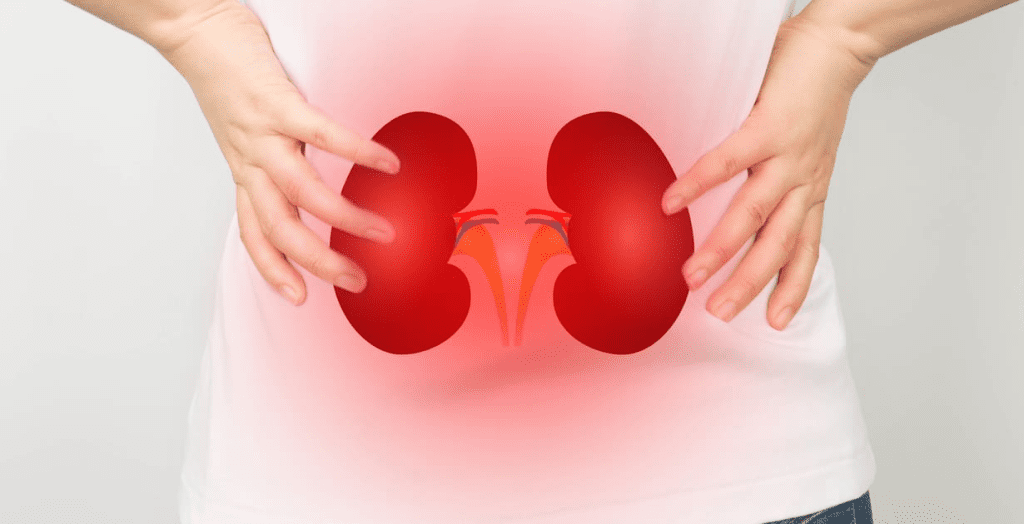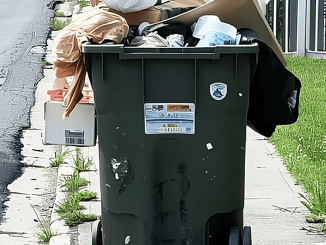Kidney failure is a serious condition that often progresses silently, with symptoms that may seem minor at first but can lead to life-threatening complications if ignored. Your kidneys are vital to filtering waste and maintaining a healthy balance of fluids in your body, so recognizing the early signs of kidney failure is crucial for prevention and timely intervention.

1. Swelling (Edema): When Your Body Retains Fluid
Swelling, or edema, often shows up in the legs, feet, hands, or even the face. Ever noticed your shoes feeling tight or your fingers looking puffier than usual?
Why It Happens: When the kidneys fail to remove excess sodium and fluids, these accumulate in the tissues, causing noticeable swelling.
What to Do: Persistent swelling is your cue to consult a doctor. While it might seem harmless, it could signal underlying kidney issues or related cardiovascular problems.
2. Persistent Fatigue: When Tiredness Becomes Your Norm
Feeling constantly drained despite getting enough sleep? Persistent fatigue is one of the most overlooked symptoms of kidney problems.
Why It Happens: Kidneys produce erythropoietin, a hormone responsible for stimulating red blood cell production. With kidney failure, this production slows, leading to anemia, which causes fatigue.
What to Do: If fatigue is paired with pale skin or shortness of breath, a medical evaluation is essential to determine whether anemia or kidney function is the culprit.
3. Changes in Urination: Your Body’s Warning Light
Your urine can tell a lot about your kidney health. Changes such as increased or decreased frequency, dark-colored urine, foamy urine, or even blood in the urine are red flags.
Why It Happens: Damaged kidneys disrupt the body’s fluid regulation, altering urination patterns.
What to Do: Pay close attention to persistent changes and seek medical advice. Early detection could prevent worsening kidney damage.
4. High Blood Pressure: A Double-Edged Sword
High blood pressure is both a cause and a symptom of kidney problems. It’s a silent killer that often escapes notice.
Why It Happens: Healthy kidneys regulate blood pressure by balancing sodium and water. Impaired kidneys lead to elevated blood pressure, creating a vicious cycle that further damages the kidneys.
What to Do: Regularly monitor your blood pressure. If it’s consistently high, discuss medication and lifestyle changes with your doctor.
5. Shortness of Breath: More Than Just Fatigue

Feeling winded after minimal effort? It could indicate more than just being out of shape. Shortness of breath is a serious symptom tied to advanced kidney issues.
Why It Happens: Fluid buildup in the lungs (pulmonary edema) or anemia caused by kidney failure can make breathing difficult.
What to Do: Seek immediate medical attention if you experience severe shortness of breath—it’s not something to take lightly.
6. Nausea and Vomiting: When Food Becomes Unbearable
Feeling queasy, especially in the mornings? Nausea and vomiting are common in advanced kidney disease.
Why It Happens: When kidneys fail, toxins and waste build up in your blood, a condition known as uremia. This often triggers digestive discomfort.
What to Do: Frequent nausea should not be ignored. Consult a healthcare professional to determine the cause and receive appropriate treatment.
7. Itchy Skin: A Clue Beneath the Surface

Constant itching that doesn’t seem to go away? This symptom could be more than just dry skin.
Why It Happens: Toxins accumulating in the bloodstream can cause intense itching. Additionally, phosphorus imbalances in advanced kidney disease may contribute to this discomfort.
What to Do: Severe, persistent itching warrants a discussion with your doctor, as it may indicate chronic kidney disease.
8. Difficulty Concentrating or Dizziness: Mental Fog at Its Worst
Struggling to focus or feeling dizzy? These symptoms might not just be from stress or lack of sleep.
Why It Happens: Anemia caused by kidney failure reduces oxygen delivery to the brain, leading to cognitive issues such as confusion, poor concentration, or dizziness.
What to Do: Don’t brush off mental fog or dizziness, especially if accompanied by other symptoms of kidney problems. Early diagnosis can prevent further complications.
Why These Symptoms Should Never Be Ignored
Kidney failure doesn’t happen overnight—it’s a gradual process that often gives subtle warnings. Ignoring these signs can lead to:
- Chronic Kidney Disease (CKD) progression.
- Life-threatening complications, including end-stage kidney failure.
- The need for dialysis or even a kidney transplant.
Early recognition and prompt treatment are key to slowing or halting the progression of kidney disease.
How to Prevent Kidney Failure: Simple Steps for a Healthier Life

Prevention is always better than cure, and small lifestyle changes can go a long way in protecting your kidney health.
Maintain Blood Pressure and Blood Sugar: Diabetes and hypertension are the leading causes of kidney disease. Keeping these under control is your first line of defense.
Stay Hydrated: Drinking enough water supports kidney function, but don’t overdo it if your kidney function is already impaired.
Follow a Kidney-Friendly Diet: Reduce sodium, phosphorus, and protein intake. Consult a dietitian for a plan tailored to your needs.
Avoid Overusing Painkillers: Prolonged use of NSAIDs and over-the-counter medications can harm your kidneys. Opt for alternatives when possible.
Schedule Regular Check-Ups: If you have risk factors like diabetes, high blood pressure, or a family history of kidney disease, regular screenings can catch problems early.
Conclusion
Kidney failure doesn’t have to be a death sentence—recognizing the early signs can make all the difference. From swelling and fatigue to changes in urination and itchy skin, your body often sends clear signals when something is wrong. By taking these symptoms seriously and seeking timely medical advice, you can prevent serious complications and protect your kidney health.
Your kidneys are silent warriors working tirelessly to keep your body functioning. Take care of them, and they’ll take care of you for years to come.


